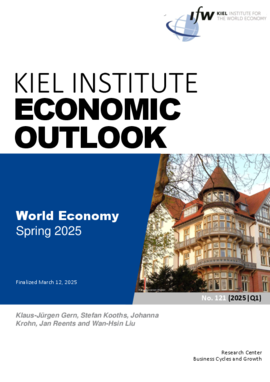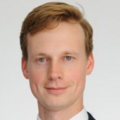Authors
Publication Date
Related Topics
Business Cycle World
The global economy is already experiencing a period of moderate economic momentum. Now, it is also exposed to additional challenges, in particular a substantial increase in economic policy uncertainty. This is mainly due to the actions and announcements of the new U.S. administration. On the one hand, they threaten to severely dampen global trade and disrupt established value chains; on the other hand, they have the potential to destabilize the U.S. economy. This forecast is based on the assumption that additional tariffs on imports into the United States will be imposed at a substantial level. Monetary policy will be eased less than previously anticipated. At the same time, however, fiscal policy is providing stronger impulses, not least because defense spending in many countries is being significantly expanded in light of the changing geopolitical landscape. All in all, we expect a even more modest expansion of the global economy. While momentum in the United States is slowing noticeably and China’s economy is struggling to gain traction, despite significant economic policy measures, due to dimmer export prospects, economic activity in Europe is likely improve slightly. Overall, as in our December forecast, we expect global output—measured on a purchasing power parity basis—to increase by 3.1 percent this year. For 2026, we anticipate an expansion of 3.0 percent (December: 3.1 percent). The recent decline in inflation has come to a halt, mainly because energy prices no longer declined in year-on-year comparison and price pressures in the service sector remained persistent. The expected further decline toward the 2 percent target is likely to occur only gradually, and there remains a risk that monetary policy will remain restrictive for longer than currently anticipated.









